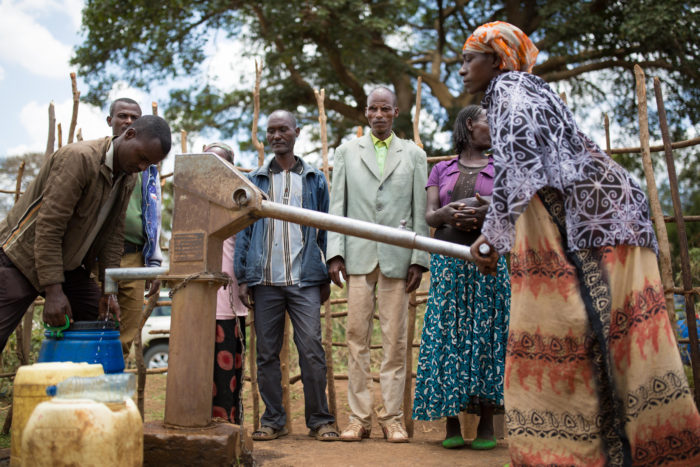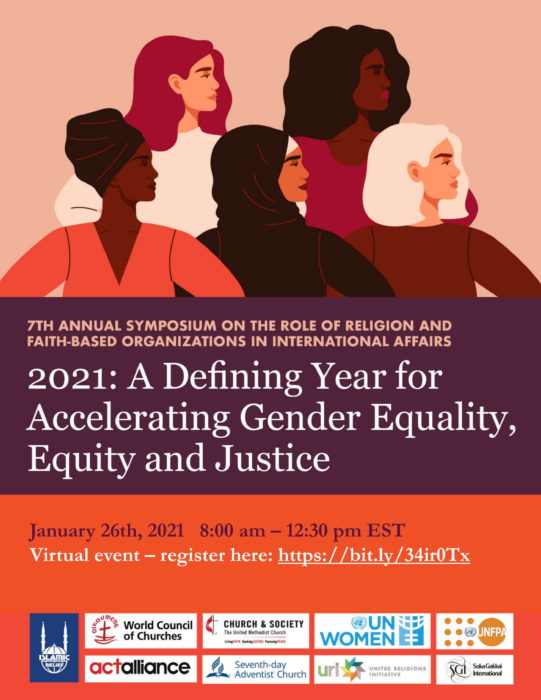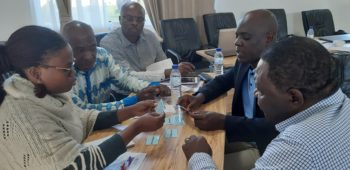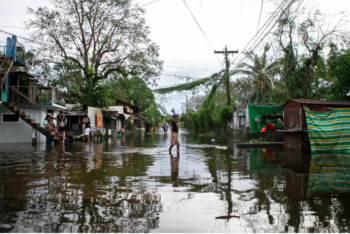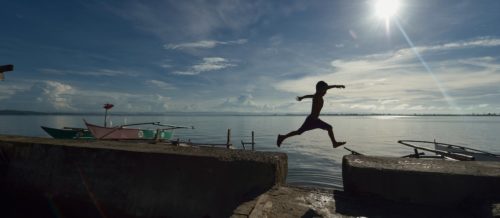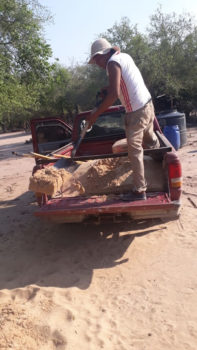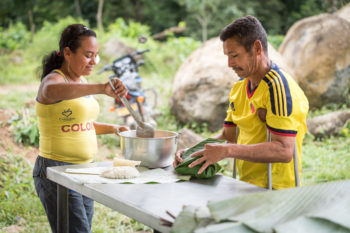
In the 7th Annual Symposium on the Role of Religion and Faith-Based Organizations in International Affairs, which drew several hundred online participants on 26 January, a lively discussion centered around “2021: A Defining Year for Accelerating Gender Equality, Equity and Justice.”
Rudelmar Bueno de Faria, general secretary of ACT Alliance, spoke in the first session on how the toxic interpretation of sacred texts, combined with harmful cultural and traditional practices, undermines the essence of gender equality and subjugates humanity. “It is crucial to work with religious leaders and actors to promote a transformative faith approach which reshapes structures and organizations to push back the pushback on gender justice,” he said. “It is the responsibility of faith leaders to reflect and de-construct theological narratives, connecting them with lived experiences of women and marginalized groups.”
The pursuit of gender justice is far beyond and far deeper than inspiring words, noted Dr Phumzile Mlambo-Ngcuka, executive director of UN Women. “I just think of the amount of grief that is out there in society,” she said. “I look at our religious leaders and pastors in the community. I’m just thinking of human-to-human needs within families, within communities as people are trying to cope. We are going need each other for these coming years, as we have many orphans, many widows, many broken families.”
Peter Prove, director of the World Council of Churches Commission of the Churches on International Affairs, reflected on how the COVID-19 pandemic altered the processes of advancing the cause of gender justice, even as sexual and gender-based violence accelerated.
“Among the many other consequences of the COVID-19 pandemic, last year we saw the postponement of major events and the disruption of key processes that we had expected to advance the cause of gender justice, while sexual and gender-based violence and other forms of gender injustice accelerated under the conditions imposed by the pandemic,” said Prove. “This year’s symposium, convened for the first time online, has provided an opportunity for representatives of faith-based organizations and faith communities together with UN partners to pick up the threads of those postponed events and disrupted processes, to arrest the negative impact of the pandemic in exacerbating sexual and gender-based violence, and to commit to working together to accelerate the realization of gender equality, equity and justice.”
And when people are “broken” at a local level, that makes situations ripe for atrocities in which women and children bear the brunt, pointed out Alice Nderitu, UN special advisor on the Prevention of Genocide. “The challenge—the very big challenge remains—of transferring the influence women have at local levels into national levels,” she said. “We need to understand extreme gender inequality as an enabling condition for atrocity crimes.”
Rudelmar Bueno de Faria, general secretary of ACT Alliance, spoke on how the toxic interpretation of sacred texts, combined with harmful cultural and traditional practices, undermines the essence of gender equality and subjugates humanity. “It is crucial to work with religious leaders and actors to promote a transformative faith approach which reshapes structures and organizations to push back the pushback on gender justice,” he said. “It is the responsibility of faith leaders to reflect and de-construct theological narratives, connecting them with lived experiences of women and marginalized groups.”
Ib Petersen, Deputy Executive Director for Management of the United Nations Population Fund (UNFPA), talked about the disproportionate impact of the COVID-19 pandemic on women and girls, reversing decades of hard-fought gains for gender equality. He also underlined the importance of sustaining the accessibility of services for sexual and reproductive health, integrating gender-based violence risk mitigation into all aspects of the epidemic response, and addressing the root causes of many discriminatory and violent behavior. Faith-based organizations and faith and traditional leaders, he said, are key allies in this battle.
“Gender equality underpins UNFPA’s three transformative goals of zero unmet need for family planning, zero preventable maternal mortality, and zero violence against women and girls, including harmful practices,” said Petersen. “As we saw, the overwhelming support and encouragement of faith-based civil society actors in the Nairobi Summit on ICPD+25 (the 25th anniversary of International Conference on Population and Development), we will continue to work closely with faith actors in key intergovernmental processes and their follow up such as the Beijing Program of Action and the Nairobi Commitments to ensure the implementation and progress.”
Shahin Ashraf, head Of Global Advocacy for Islamic Relief, said that interrogation of our histories is a fundamental starting point for understanding and engaging, with the ways in which human relations can be forged. “A vision is in sight, let’s embrace it, and let’s forge friends with people of faith, with those we are comfortable and those we are not,” said Ashraf. “Intersectionality demands that we all think transnationally and find ways to have debates in which we are respectful of our differences, and find ways to learn from them in today’s world.”
Dr Ganoune Diop, secretary general of the International Religious Liberty Association, stressed the importance of addressing gender inequality on all levels. “Women disproportionately suffer the tragedies of human existence,” he said. “In the workplace, women disproportionately earn less and are denied higher positions.”
Coalition building
Speakers agreed to continue to work together in ways that build rapport between faith communities, civil organizations and grassroots efforts.
“We need to redirect negative religious energies into positive religious energies,” urged Victor Ochen, founder of the African Youth Initiative Network. “Under the current circumstances, we have to come up with a like-minded coalition.”
Nika Saeedi, a UN team leader for Prevention of Violent Extremism in Conflict Prevention, Peacebuilding and Responsive Institutions, said that hate speech has been surging online during the COVID-19 pandemic. “We have to accept that we have a long way to go,” she said. “Let’s identify where to put the energy.”
Dr Ibrahim Salama, chief of the Human Rights Treaties Branch, Office of the High Commissioner for Human Rights, emphasized that re-narrativization is exactly the crux of the matter—pointing to the UN, the member states, and religious bodies doing the same.
Salama made clear the tie between religion and the pursuit of human rights. “One of the weakest links in the chain of religion and human rights is the intersectionality,” he said. “The general perception has always been that these two disciplines do not mix. There is nothing further from the truth than this.”
Dr Junaid Ahmad, director of the Center for Islam and Decoloniality, responded that it really is not re-narrativization but “decolonizing received knowledge” that perpetuate intersecting inequalities, and he said this is where a “transformative faith approach” greatly lies.
Ahmad also said that pursuing gender justice ties back to serving a transcendent being. “I think that this is the starting point for someone like me and a core concept for particularly myself and within the Islamic tradition—and I think all faith-affirming traditions—is some type of divinity God, or you may call it something else but the transcendent as the one that one surrenders to,” he said. “That is a core perception that has inspired me and many others in what we call the ‘gender jihad’—the gender justice movement.”

